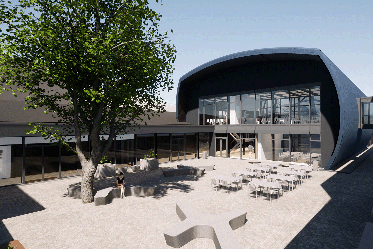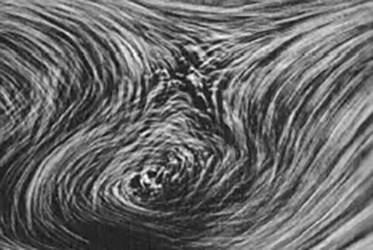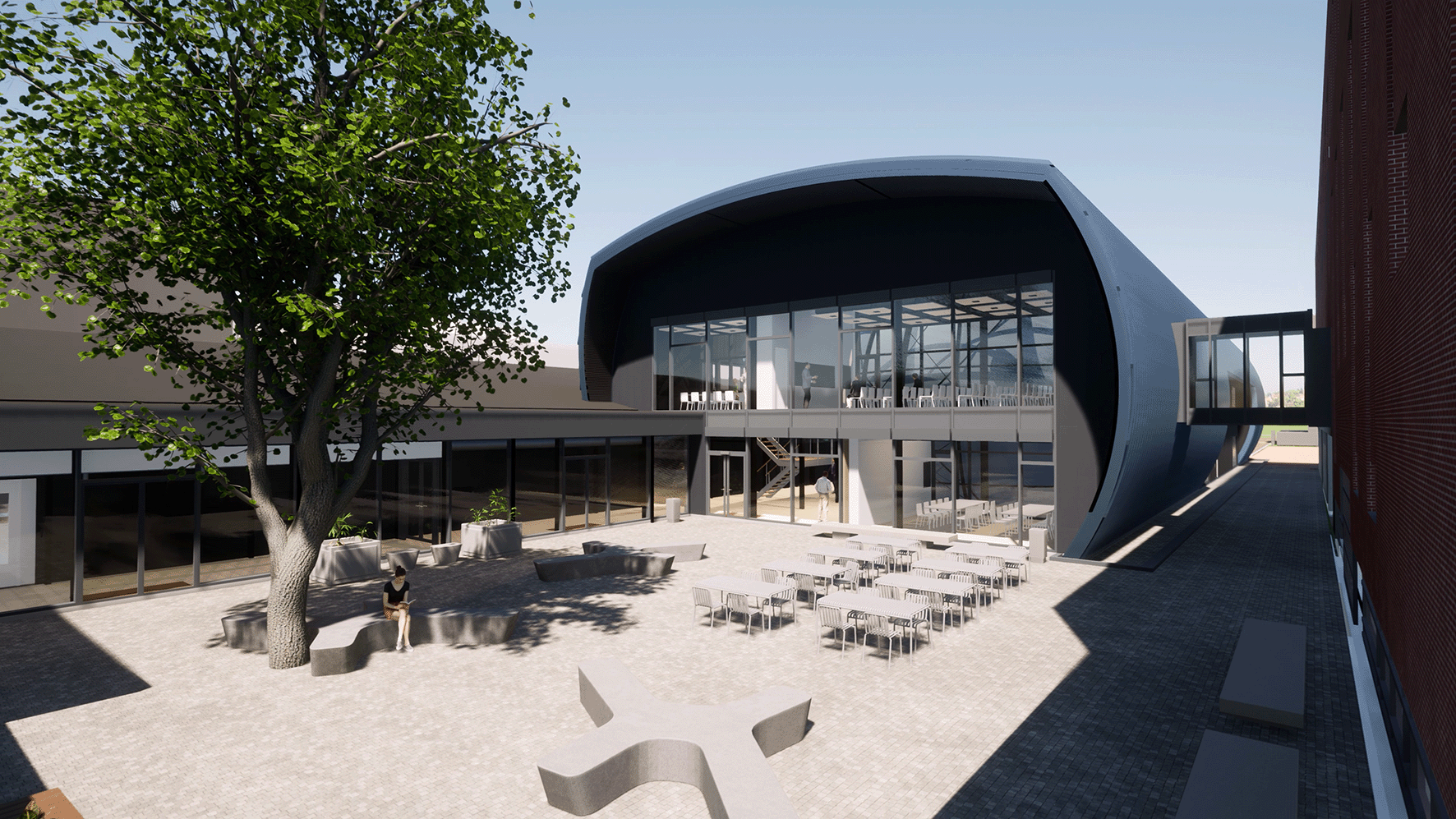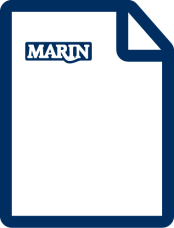
Create a MARIN account to stay updated
April 2023, no. 135
Report






In September 2022 MARIN started the construction of its Seven Oceans Simulator centre (SOSc). With this new research facility, MARIN aims to make maritime operations safer and more efficient through the most realistic simulation of the behaviour of vessels and their interaction with maritime infrastructures, the environment and people. The SOSc will have spherical and cylindrical projections and motion-based simulators, a vessel traffic management simulator, shore control centre and a virtual/augmented reality experiment room. Human factor measurement and observation techniques can be simulated and complex multi-ship maritime operations can be assessed.
The spherical simulators in combination with a motion-based bridge will immerse crew in such a way that the best training and research value is achieved.
In the Maritime eXperience Lab, we research the latest VR/AR systems and apply them to maritime systems and operations. All of our simulators can be linked to realistically simulate complex multi-ship and multi-tool operations.
The new SOSc facility is set to be operational in spring 2024.


The Foil Design JIP aims to achieve advanced hydrodynamic knowledge which will assist in the early design phase of new concepts of foiling vessels.
Research is largely focused on the performance of the isolated hydrofoils in unsteady conditions (by combining for example, effects of forced oscillation motions and free surface effects). The main objective is to provide a preliminary design tool for the hydrofoil and give a good starting point for the designers with respect to the steady and unsteady foil characteristics (lift and drag), in addition to providing information for the dynamic control system design. So far, eight participants are aboard, representing different sectors such as technical universities, shipyards, appendage suppliers and design studios, but new participants are still welcome to join. The JIP is currently in its second year of execution, and it will be completed by January 2024.
www.marin.nl/jips/foil-design


Lafeber, F.H., Bosschers, J., Lidtke A., Lloyd, T., Wijngaarden van, E., Moulijn, J.,
7th International Symposium of Marine Propulsors (smp2022), Wuxi, China, Oct 17, 2022
Prediction of underwater radiated noise from propeller cavitation during concept design

Kruif, B.J. de, International Ship Control Systems Symposium (iSCSS),
Delft, The Netherlands, Nov 8, 2022
Autonomous docking of a feeder vessel

Ye M., Chen H.C., Koop A. Energy, Volume 265,
Dec 9, 2022
High fidelity cfd simulations for the wake characteristics of the ntnu bt1 wind turbine



April 2023, no. 135

June 18-20
World Maritime Rescue Congress
May 16
MARIN R&D seminar
May 1-4
OTC
April 17-21
Hydrodynamics in Ship Design course
April
17-21
BlueWeek
MARIN will be present at the following events. Let’s meet up again soon!







Create a MARIN account to stay updated
Report
In September 2022 MARIN started the construction of its Seven Oceans Simulator centre (SOSc). With this new research facility, MARIN aims to make maritime operations safer and more efficient through the most realistic simulation of the behaviour of vessels and their interaction with maritime infrastructures, the environment and people. The SOSc will have spherical and cylindrical projections and motion-based simulators, a vessel traffic management simulator, shore control centre and a virtual/augmented reality experiment room. Human factor measurement and observation techniques can be simulated and complex multi-ship maritime operations can be assessed.
The spherical simulators in combination with a motion-based bridge will immerse crew in such a way that the best training and research value is achieved.
In the Maritime eXperience Lab, we research the latest VR/AR systems and apply them to maritime systems and operations. All of our simulators can be linked to realistically simulate complex multi-ship and multi-tool operations.
The new SOSc facility is set to be operational in spring 2024.


The Foil Design JIP aims to achieve advanced hydrodynamic knowledge which will assist in the early design phase of new concepts of foiling vessels.
Research is largely focused on the performance of the isolated hydrofoils in unsteady conditions (by combining for example, effects of forced oscillation motions and free surface effects). The main objective is to provide a preliminary design tool for the hydrofoil and give a good starting point for the designers with respect to the steady and unsteady foil characteristics (lift and drag), in addition to providing information for the dynamic control system design. So far, eight participants are aboard, representing different sectors such as technical universities, shipyards, appendage suppliers and design studios, but new participants are still welcome to join. The JIP is currently in its second year of execution, and it will be completed by January 2024.
www.marin.nl/jips/foil-design


Ye M., Chen H.C., Koop A. Energy, Volume 265,
Dec 9, 2022
High fidelity cfd simulations for the wake characteristics of the ntnu bt1 wind turbine

Kruif, B.J. de, International Ship Control Systems Symposium (iSCSS),
Delft, The Netherlands, Nov 8, 2022
Autonomous docking of a feeder vessel

Lafeber, F.H., Bosschers, J., Lidtke A., Lloyd, T., Wijngaarden van, E., Moulijn, J.,
7th International Symposium of Marine Propulsors (smp2022), Wuxi, China, Oct 17, 2022
Prediction of underwater radiated noise from propeller cavitation during concept design


